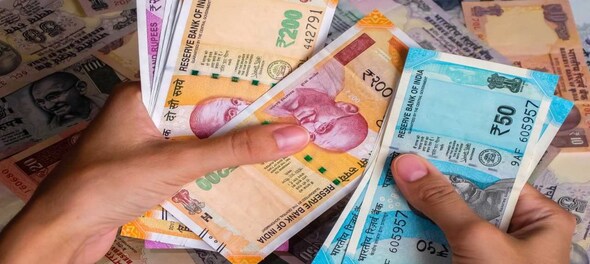
The International Monetary Fund (IMF) has, in a September 2023 paper ‘Resilient Remittances ‘authored by Dilip Ratha, the World Bank lead economist, highlighted the critical role that remittances play in developing economies.
Migrant workers send money back home; this provides vital income to millions of families, and their contribution is often overlooked. As per the paper, 2022 saw global remittances reach a record $647 billion and very significantly three times the official development assistance (ODA) from multilateral agencies.
Remittances, as has been observed, are stable, even when there is a crisis in the source or receiving country. For instance, during COVID-19 in 2020, while global income fell by 3%, remittances fell by just 1.1%.
India is the world’s largest recipient of inward remittances. In 2022, it became the first country to receive more than $100 billion. The World Bank’s latest Migration and Development Brief pegs the figure at $111 billion, growing at a rate of more than 12%.
This has substantially helped boost the foreign exchange reserves, which today stand in the region of $586 billion. The contribution of inward remittances from the large Indian diaspora constitutes, in effect, more than 18% of the country’s foreign exchange reserve. Remittances account for nearly 3% of India’s GDP. They certainly act as a buffer for our external sector, especially when the trade deficit increases which today stands at $19.37 billion.
The USA (and not the UAE, as is popularly believed) is the major source country for India’s remittances. Nearly 23% of the total remittances come from the USA, reflecting the profile of Indians working in the USA, all or most of whom are highly educated, well-placed professionals. This is in sharp contrast to the profile of the Indian community in the Gulf countries: less educated, low-skilled, and informally employed.
Section 3 of the Foreign Exchange Management Act (FEMA) prohibits receiving 'otherwise through an authorised person, any payment by order or on behalf of any resident outside India in any manner' — in other words, all inward remittances must be received only through authorised channels.
How much inward remittances are we losing to informal channels, or more popularly known as hawala? The exact quantum will always be only an informed estimate. The White Paper on Black Money laid before Parliament in 2012, while presenting different facets of black money, made mention of the estimates as per various studies conducted in the past. It suggested that, as per these studies, it could range from 5% to 14.4% to 20.7% of the GDP. This is huge. This covers all aspects of black money, not just money received through hawala channels.
The frequent seizures made by the Directorate of Revenue Intelligence (DRI) and the customs formations that are indicative of gold smuggling have increased alarmingly. With Diwali around the corner, smuggling is only bound to increase. A collateral impact of gold or any smuggling is that all accounts are settled largely through hawala. What this suggests is that correspondingly and consequently, there is a loss of foreign exchange. According to the details available on the website of the Enforcement Directorate, more than 32,000 investigations have been initiated under FEMA in 2022–23 (till January 23). Newspaper reports highlight raids across the country on Hawala operators and illegal forex dealers. The investigations initiated also mention the 'detection of suspected laundering of undisclosed income running into thousands of crores'.
This raises the larger question: why hawala continues to be a popular mode of sending remittances despite the dramatic growth and easy availability of banking channels? The immediate answer is that illicit channels are easier, faster, more flexible, promise delivery of cash to your residence, and are less expensive. Even though, in most cases, the money being remitted is money earned by migrants from legal sources, illegal means are used to remit the money to their homes. This is unfortunate and reflects poorly on banking channels. Banks must compete not only with each other but with illicit channels that are freely available. They must ensure better service than these informal channels.
An issue often cited is that licit channels have too many regulatory requirements to fulfill, and consequently, even genuine customers shy away from using them. Every remittance transaction is treated with great suspicion. Banks should follow a risk-based approach to allow for less cumbersome legal requirements. The rate of exchange is another factor. Banks undoubtedly have less control over this. However, the fact remains that every migrant keenly watches this and would like to get as good a rate as possible—licitly, failing which—illicitly. The growing reach and popularity of digital wallets via smartphones is one answer. It is possible to access your digital wallet held in India from abroad and transfer money from your account locally; however, if digital wallet facilities are available abroad for you to transfer money from there to India, it will help reduce the menace of hawala.
Migration is only going to increase. The Indian diaspora spread between various categories as per the Ministry of External Affairs, as non-resident Indians, persons of Indian origin and overseas Indians will increase from the 210 countries they are currently residing in. Remittances will also increase. It will be in the government’s interest to make remittances through licit channels more convenient. It will substantially add to our foreign exchange reserves and reduce black money within the country.
—The author, Najib Shah, is former Chairman, Central Board of Indirect Taxes & Customs. The views expressed are personal.
(Edited by : Ajay Vaishnav)
First Published: Oct 24, 2023 5:29 PM IST
Check out our in-depth Market Coverage, Business News & get real-time Stock Market Updates on CNBC-TV18. Also, Watch our channels CNBC-TV18, CNBC Awaaz and CNBC Bajar Live on-the-go!


10% discount on fare on Mumbai Metro lines 2 and 7A on May 20
May 3, 2024 2:40 PM
'Rahul Gandhi deserted Amethi due to fear of Smriti Irani': How BJP plans to puncture Congress' UP plan
May 3, 2024 1:12 PM

